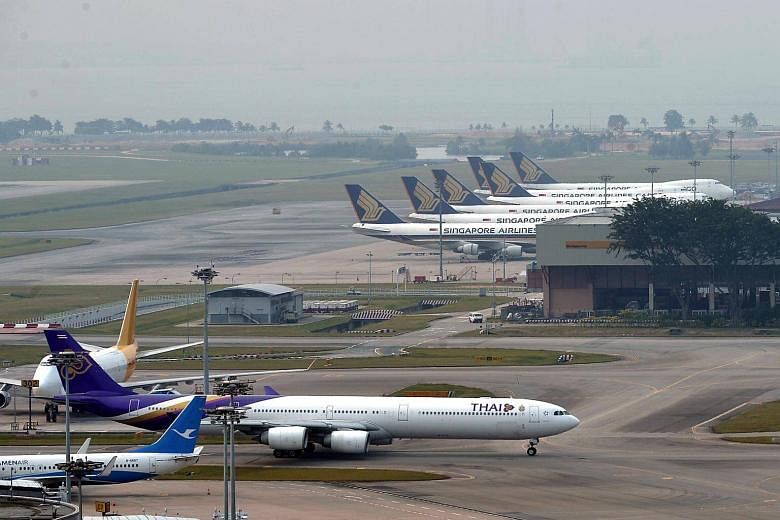SINGAPORE - The head of the United Nations' civil aviation arm has warned Asian nations that unless they set aside sovereignty concerns and work together to share data and information, the region will not be able to cope with the growing number of flights.
Dr Fang Liu, secretary-general of the International Civil Aviation Organisation (ICAO), stressed the point on Monday (Nov 20), at the opening of the Air Traffic Flow Management Symposium 2017, at the Marina Bay Sands Convention Centre.
It is of the utmost importance that airlines, air navigation service providers and airport operators collaborate more intensively and remain collectively diligent in managing airspace capacities and traffic demand, she said.
The need is especially "urgent" in the Asia-Pacific region, which accounts for 33 per cent of global traffic today while achieving a "staggering" 10.2 per cent growth rate in 2016.
Dr Fang said: "While your region is already confronted by capacity shortages, the current forecast indicates that traffic growth here will only continue... Your current and projected flight volumes are putting the entire regional network under stress, and these challenges do not respect national limits.
"Borders offer no protection against increasing air traffic, nor should they, given that increased international routes and flights equate with increased local prosperity."
For the air transport sector to continue to move people and cargo effectively and efficiently, the industry must push for Air Traffic Flow Management (ATFM) systems and processes, Dr Fang said.
ATFM aims to optimise the existing capacities of the air traffic management system.
This is usually achieved through the more precise coordination of take-off and landing by flight planners and air traffic controllers at departure and destination airports, and through the dynamic routing of flights around constrained airspaces.
For this to work, a more open attitude towards flight data sharing is required, Dr Fang said. She added that for some states, "this will involve sovereignty concerns", as all partners must be willing to fully commit to and support a more open and collaborative international flight information environment.
She urged the 250 delegates at the event, including government representatives and other industry players, to work together to ensure the long-term viability and sustainability of the global air transport network, which currently connects 10 million passengers daily on more than 100,000 flights.
She said: "In many mature air transport markets, we no longer have the luxury of simply adding new airports and slots to accommodate further traffic growth."
Competition for airspace is also accelerating, with new unmanned and commercial space-related services seeking to carve out their own niches for the expanding operations occurring and forecast in those areas, Dr Fang added.
Singapore, a strong supporter of ATFM, will continue to work with its counterparts in the region and other stakeholders, said Mr Kevin Shum, director-general of the Civil Aviation Authority of Singapore (CAAS).


